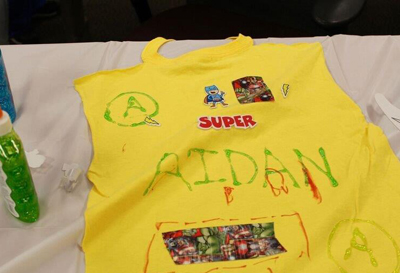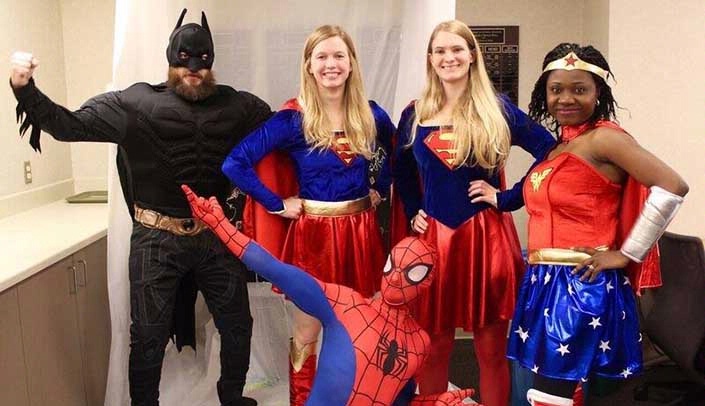In November, superheroes paid a visit to Nebraska Medicine.
 |
Making their own cape is an important part of the event for young patients. |
The event was the second of its kind for the GSA, which held its first Superhero Day in 2015. Afterward, GSA President Kristin Wipfler said, Nebraska Medicine staff asked if the day could become a regular event. The GSA, which is planning to make the event an annual affair, or even once each semester, now has four costumes that it owns — Wonder Woman, Supergirl, Spiderman and Batman – to support the effort.
“Some people have their own costumes already,” Wipfler said. “Last year, we didn’t supply any of the costumes.”
If patients are too sick to attend the event, students may visit their rooms and let them decorate their own superhero cape, one of the popular crafts at the event.
“It’s important to encourage community engagement and more involvement in other aspects of campus for graduate students,” said Wipfler, a Ph.D. candidate in genetics, cell biology and anatomy. “A lot of times, we’re kind of off on that side of campus in our own world. It’s beneficial for everyone — the students and the kids — if we all get involved.”
The GSA outreach chair, Eyerusalem Lemma, a student in the cancer research graduate program, pointed out that graduate students are often in a lab or in offices.
“What I like about GSA is that we provide that service component, because I know people want to help and get engaged, but it’s hard to have that time commitment,” she said. “What I like about being an outreach chair is I find those opportunities for students. Having these on-campus opportunities are really important and help us feel part of the ‘medical’ part of the medical center.
“Besides,” she said, “we get just as much out of it as the kids do.”
